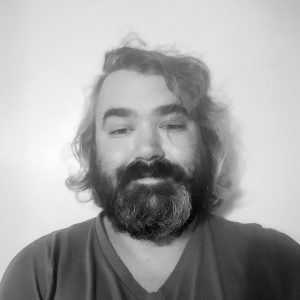Zach Slanger
Instructional Designer for Inclusivity and Academic Success; Visiting Instructor

Biography
Zach Slanger is Instructional Designer for Inclusivity and Academic Success at Pratt Institute’s Center for Teaching and Learning and Visiting Instructor in the Department of Social Science and Cultural Studies. He is currently completing his Ph.D. in Philosophy with a concentration in Women’s and Gender Studies at Duquesne University.
Zach’s research focuses on narrative and psychoanalytic theory, specifically developing a Laplanchian approach to understanding autobiographical writing. His dissertation, “Theorizing the Self: A Laplanchian Reading of Autobiography in Augustine, Rousseau, and Freud,” examines how the psychoanalytic concepts of the enigmatic, transference, and translation illuminate fundamental questions about autobiographical motivation, subjectivity, and truth.
As a visiting instructor at Pratt since 2022, Zach teaches courses including Introduction to Theory and Critique and Contemporary Theories of Gender. His pedagogical approach combines rigorous theoretical engagement with creative practice and collaborative learning. Drawing on his philosophical training in psychoanalysis and continental philosophy, he guides students to connect theoretical concepts to their lived experiences and creative practices.
Zach serves as co-president of Pratt’s Academic Senate (2025-2028) and on the Pratt Faculty Union’s Elections Committee (2025-2028) and sits on multiple institutional committees focused on accessibility, academic integrity, and inclusive excellence. Past roles include Senior Writing Tutor at the Pratt Writing and Tutorial Center and Coordinating Editor for Après Coup Psychoanalytic Association.
In his role at the Center for Teaching and Learning, Zach develops faculty-facing programs and resources on topics including Universal Design for Learning, multicultural and multilingual teaching, and open educational resources and practices. He approaches faculty development as an opportunity to foster systemic culture change that centers equity, collaboration, and the democratization of education. His work is grounded in the belief that meaningful pedagogical transformation happens through sustained community engagement and ongoing spaces for faculty to experiment, reflect, and support one another’s growth. Ultimately, he believes that teaching and learning are inherently political acts that shape how students understand themselves, their communities, and their possibilities in the world; faculty development should build capacity for the kind of inclusive, responsive pedagogy that can harness this transformative potential for all learners.
Education
Ph.D. Candidate, Philosophy (with a Concentration in Women’s and Gender Studies), Duquesne University
M.A., Philosophy, Duquesne University
B.A., Critical and Visual Studies, Pratt Institute